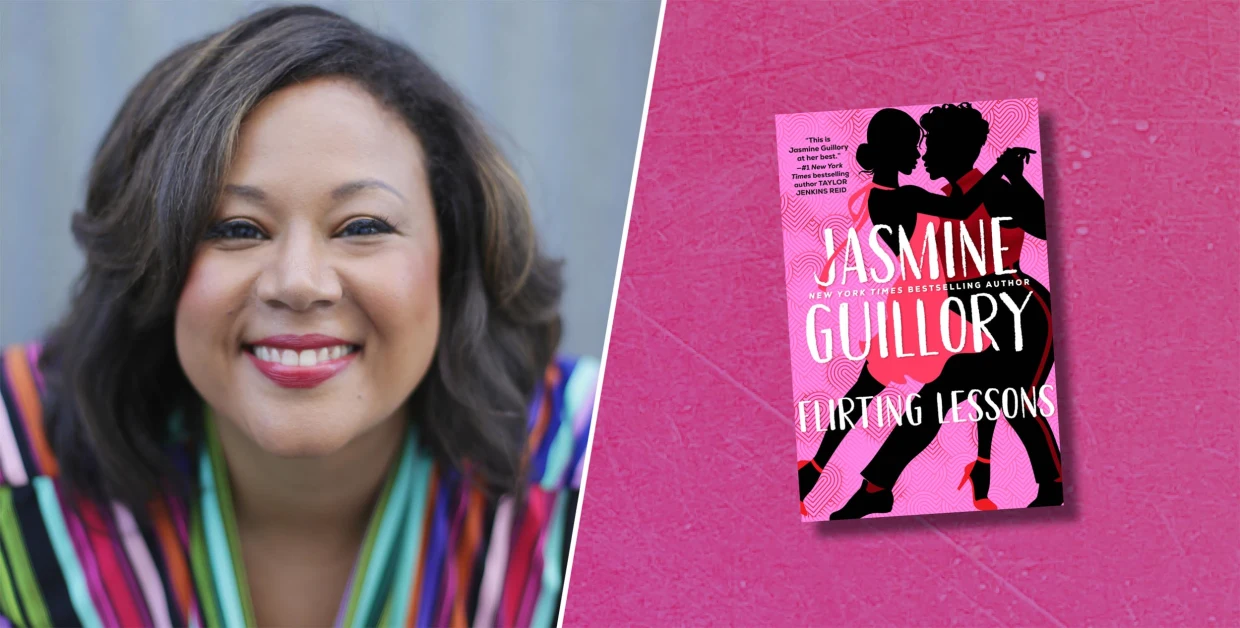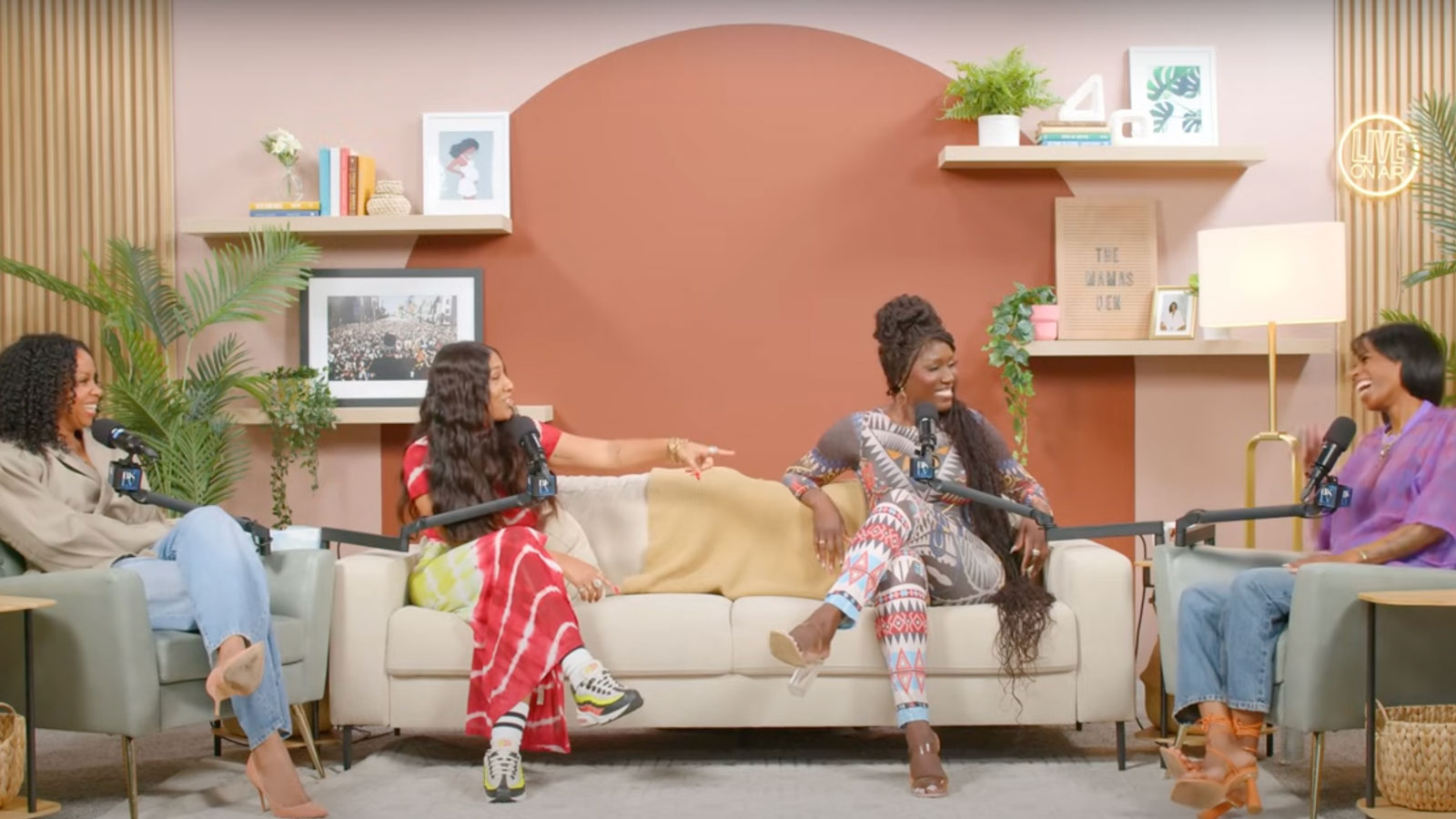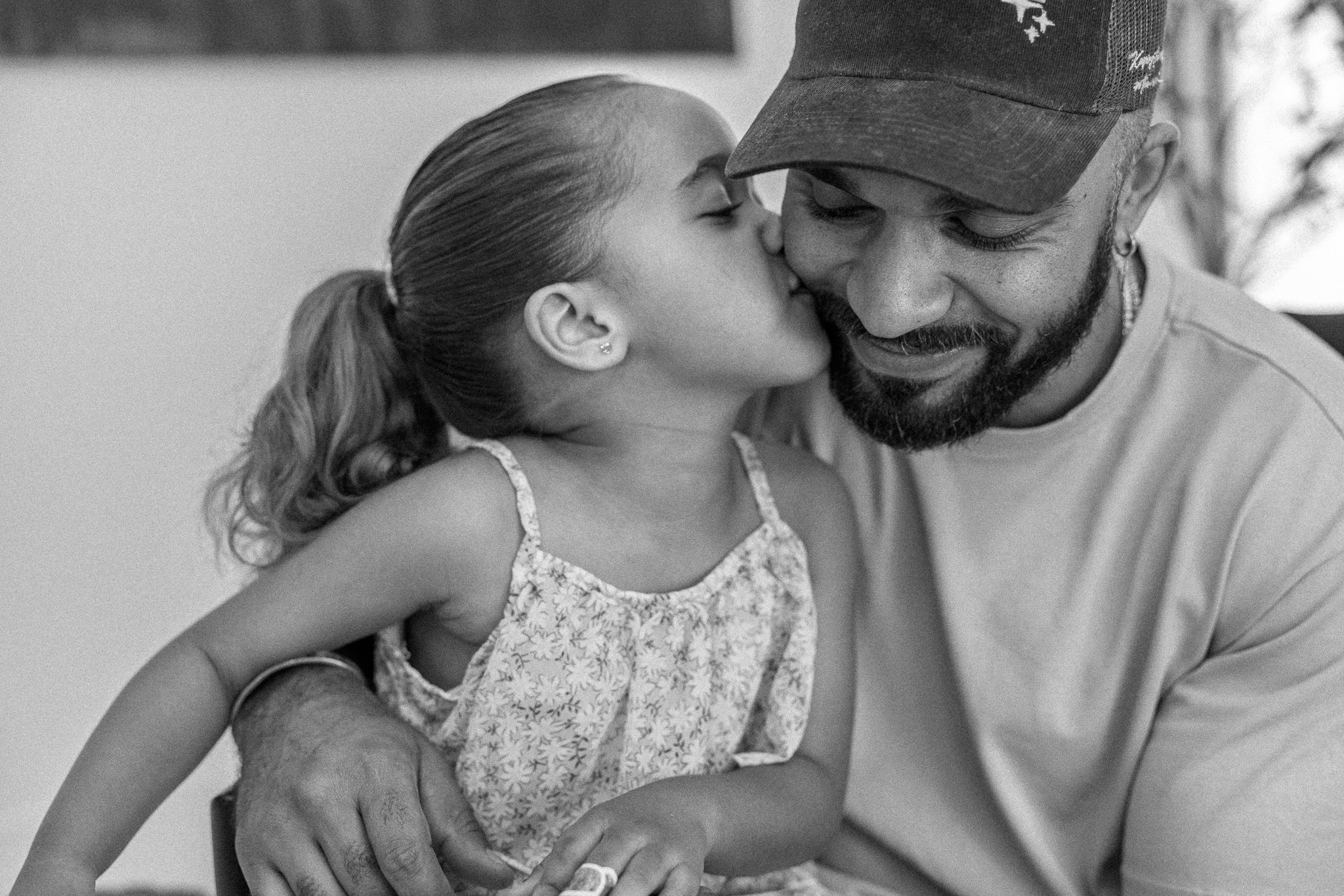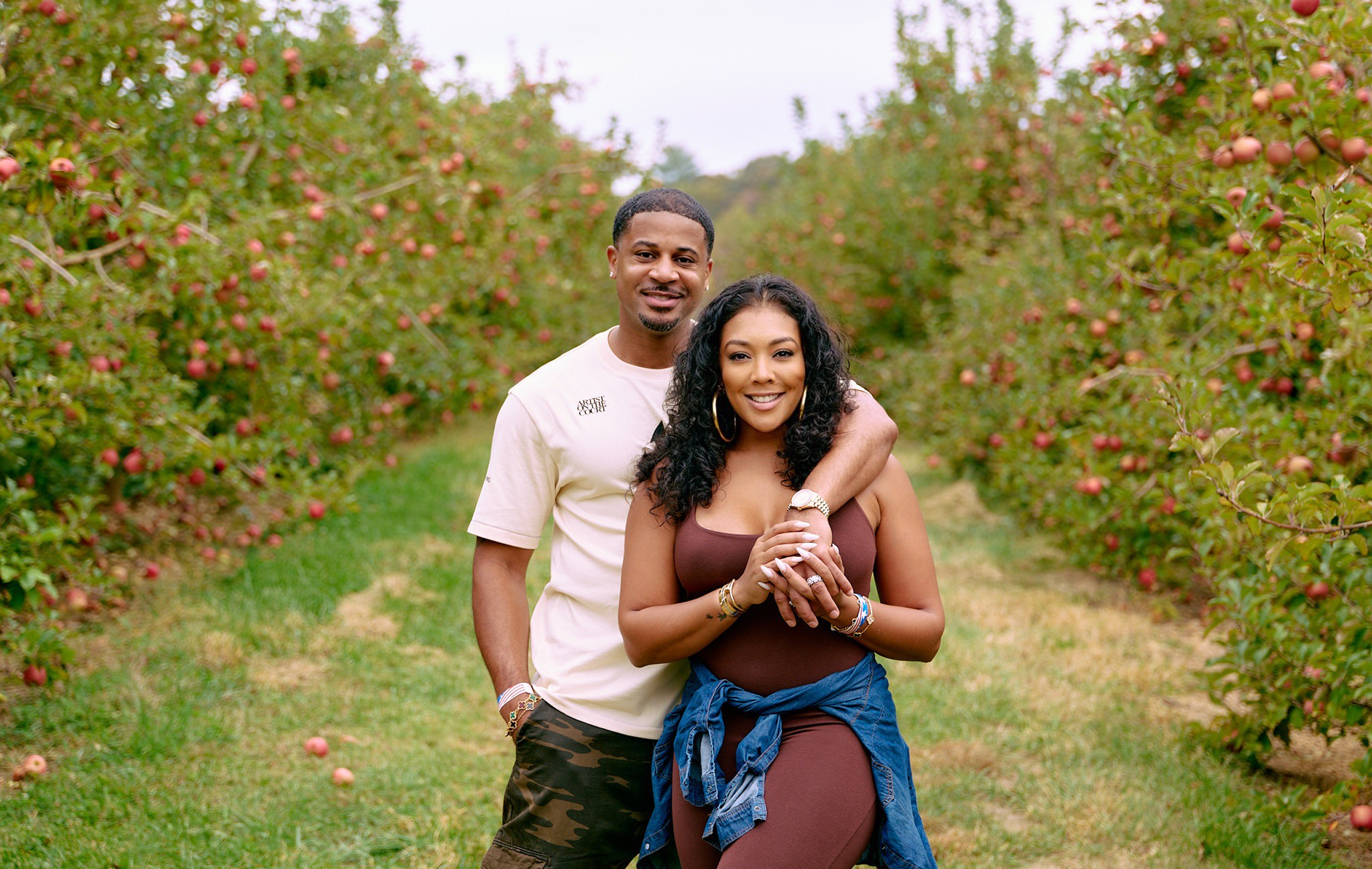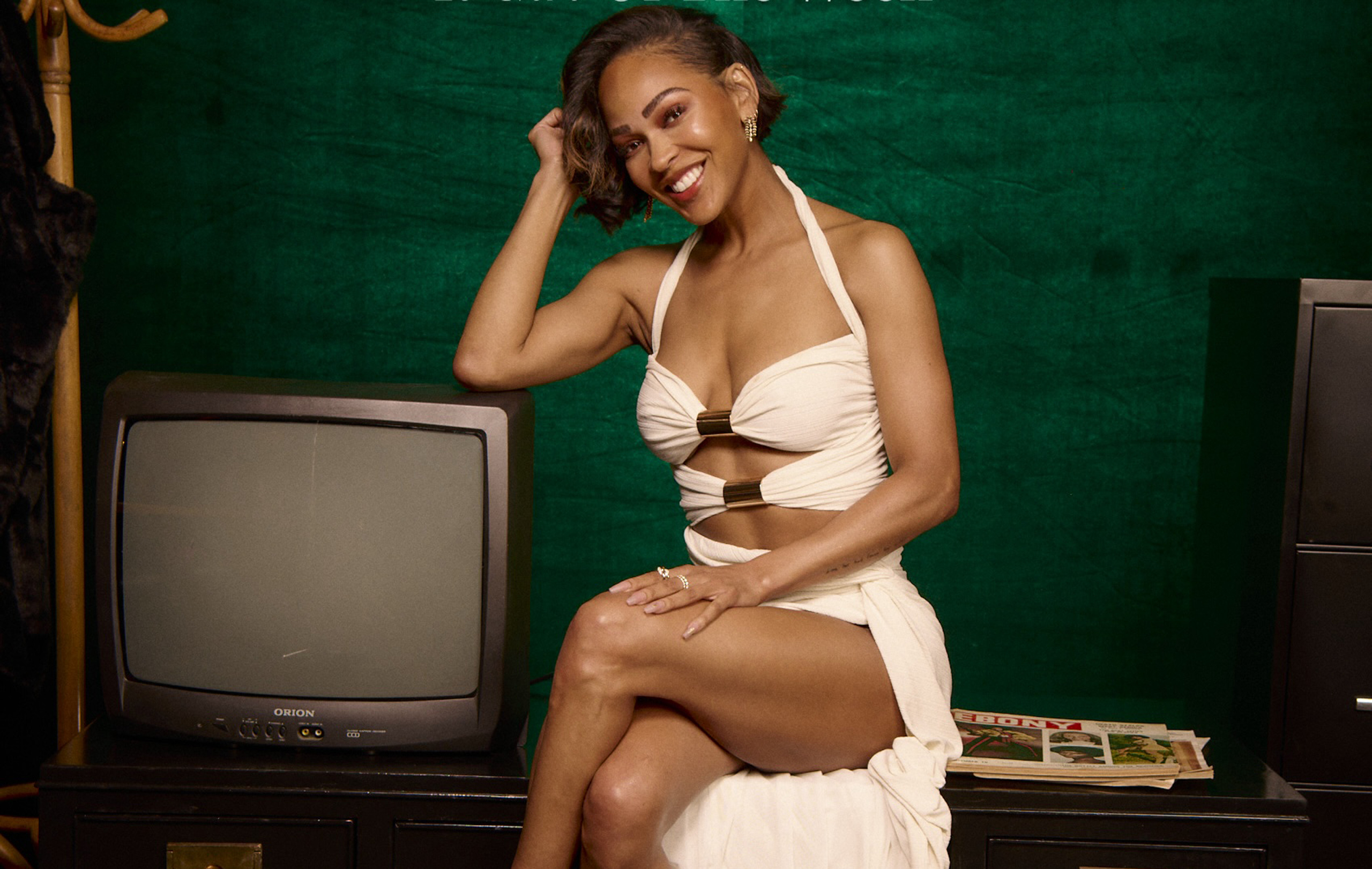
Black Love Creator Codie Elaine Oliver (Photo courtesy of Tommy Oliver)
Black Love Creator Codie Elaine Oliver (Photo courtesy of Tommy Oliver)
Editor’s Note: This feature interview with Black Love creator Codie Elaine Oliver originally appeared in the Summer 2020 issue of CEOMOM Magazine.

Black Love Creator Codie Elaine Oliver (Photo courtesy of Tommy Oliver)
For Codie Elaine Oliver, it’s more than a love thing. It’s a passion for storytelling. It’s a calling to use her platforms to magnify Black voices and move them beyond the role of supporting character. It’s family. It’s commitment. It’s transparency. It’s Black Love.
Six months after meeting, Oliver got engaged to her partner in life and business, Tommy Oliver. Together, they sought to bring the diverse and relatable stories of Black love to the screen. The Black Love docuseries made its debut in 2017 on OWN TV and is now working on its fourth season. They have featured notable couples such as Oscar winner, Viola Davis and her husband Julius Tennon, as well as “This Is Us” star, Sterling K. Brown and his wife, actress Ryan Michelle Bathe.
With several projects in the works under their production company, Confluential Films, and brand, Black Love, Inc, Codie Elaine Oliver is dedicated to creating content that she’s passionate about, no matter the subject matter or platform. Oliver spoke to CEOMOM Magazine about her role as a content creator and how she is using her platforms to fight for social justice.
Who is Codie Elaine Oliver?
I’m a mom and a wife who loves my community. My life’s work has been devoted to creating conversations in my community about being the healthiest, happiest versions of ourselves, most notably Black Love.
You and your husband, Tommy Oliver, have been on a journey with Black Love as creators and owners of the show. Describe what it’s like to be leaders in the docuseries space, specifically on topics that reflect your personal story as partners in life and business.
I don’t know that we think of ourselves as leaders in this space as much as people who are committed to telling our stories, especially Black love stories. We are committed to telling stories that talk about the human condition and who we are as people universally. We are doing that as much as possible through Black and brown faces. I’m fully aware that Black Love launched the conversation around more content in the authentic black space. And I say authentic from a documentary perspective as opposed to scripted or even reality, which is loosely scripted. I’m humbly aware of the impact that Black Love has had. I’m grateful that we have created something that people want to either model or build upon.

2020 Image Awards Prep (Photo courtesy of BreAnna Jones)
Black Love has shifted the narrative because we pull back the curtain on what it takes to be a husband, wife, mother, father, partner.
Now, how does it affect us doing something so personal together? It does in good and bad ways. We joke that it gives us the cheat codes in terms of tips and resources to have a better relationship- no matter who you are, where you are, what stage of life, or how many years you’ve been together. So while it gives us those insights and tips, that doesn’t necessarily mean they’re committed to muscle memory. We may know that when you’re having issues communicating you should talk it through without judgment and phrase the question in a certain way. While we may know that intellectually, emotionally it isn’t always possible. So we spend time course correcting and getting it wrong just as much as everybody else. That also applies to working together. It is a delicate dance working together and being married and raising three kids under four. We’ve figured out when to turn something off. Sometimes that’s turning mom off. Other times, that’s turning business off for our relationship. It is a process and we have to be reminded when not to talk about the office, the business or the next project.
How has Black Love shifted the narrative on love, parenthood and marriage in the Black community?
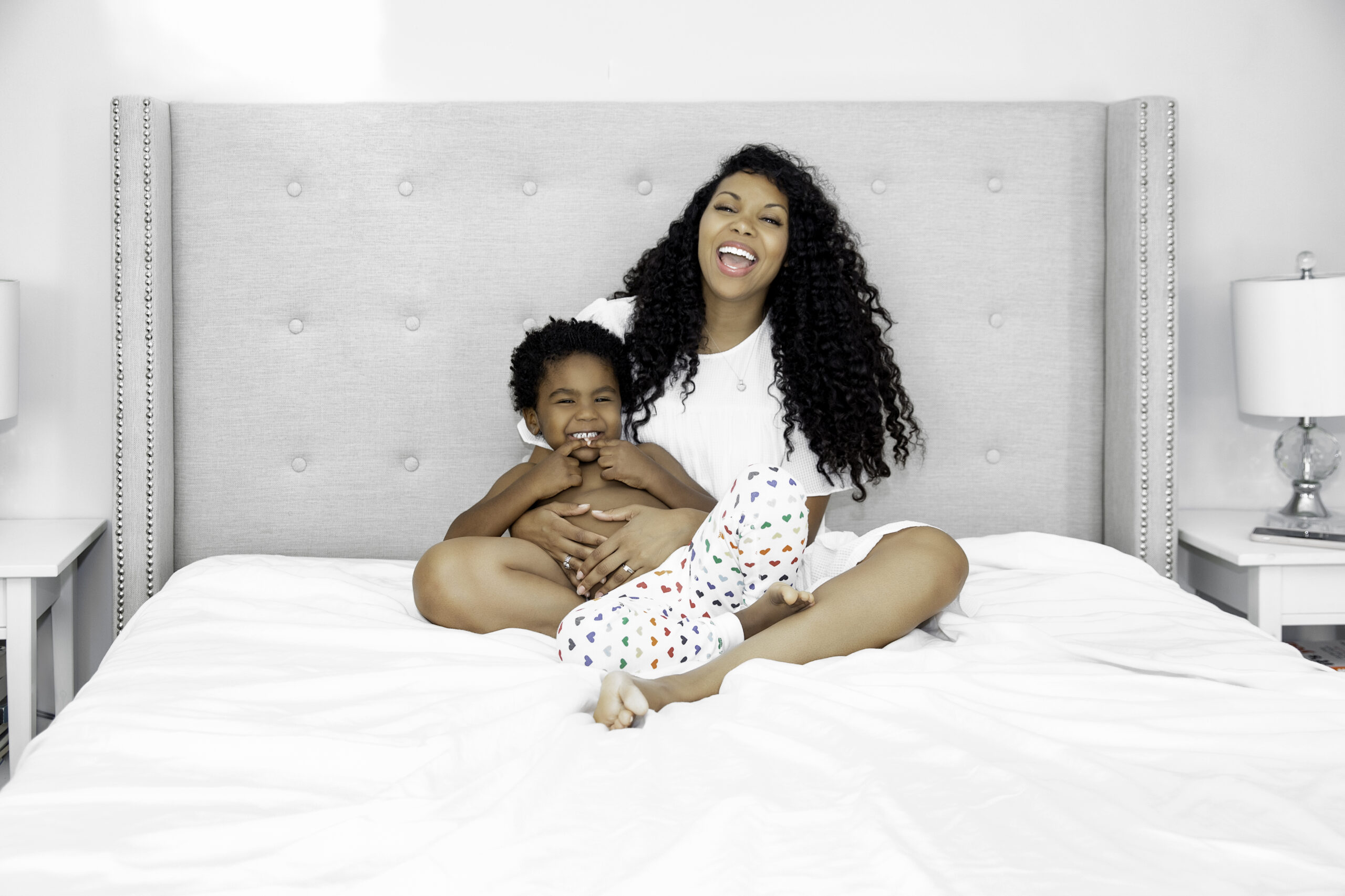
Black Love Creator Codie Elaine Oliver and her son Brooks (Photo courtesy of Christiane Fe)
Black Love has shifted the narrative because we pull back the curtain on what it takes to be a husband, wife, mother, father, partner. For many of us growing up, whether it was happy relationships or bad relationships, nobody was talking about them. I believe Black Love has struck a chord, because nobody was talking about what was making a relationship work or the obstacles they had to overcome. We’ve discussed infidelity. We’ve discussed finances. We talk about those dumb conflicts that you have over and over and don’t know how to resolve. We show that a lot of people are having them. We’re offering examples of ways to cope, ways to problem solve, ways to compromise that typically you have to go to therapy to figure out (and people should still go to therapy). Black Love the docuseries, our social platforms and are resonating with people because we are creating conversations that often are not being had.
You are a partner at Confluential Films with your husband. Describe your process for taking on new projects.
It’s whatever we’re passionate about. There’s not a format that’s off the table. Both Tommy and I have been in and around film and television for over a decade so we have a lot of friends who are well-established, and many not, who will come to us with various projects. For us, it’s about how it makes us feel. My husband is particularly good at knowing what the marketplace is looking for. We’ll like a project, but will have to determine what to do with it? Figuring out a specific format or distribution platform that’s right is just as important as being passionate about it.
No amount of time is too little to put yourself first.
With Black Love the docuseries, and the Black Love Live events, what’s next for the Black Love brand? What other stories (especially those of the Black community) do you want to tell?

Photo courtesy of Tommy Oliver
I’m passionate about black maternal health. And while that may not sound like the sexiest TV concept, I am actively developing some ideas around doulas. I think that they’re an important and interesting part of the childbirth process, and that not enough people know about them. It’s something I am very passionate about.
I continue to tell love stories. We created Black Love, Inc. to best support the show as well as blacklove.com, our Black Love social channels and live events, but also to create content that was specifically romantic content featuring Black people. I got into this business to tell our stories. I went to USC for film school after Howard undergrad. I went to USC with the intention of telling universal stories through the Black lens, stories that anyone can relate to, but that have us at the center. We are the minority in terms of numbers in this country, but we are also relegated to the minority in tv and film. I am always looking for and excited by projects that showcase us in ways that we’ve never seen. That is what I am committed to through and through, no matter the type of project or the subject matter. For me it is important to have us at the center.
Related Articles:
Letter From The Editor: Codie Elaine Oliver
And Then There Were 5
Black Love Live is Back! Watch Your Favorite Couples Dish on Sex, Love, and Marriage
You did an interview where you said, “I prioritize my sanity.” As a mother of three boys, what are your top three tips for prioritizing your mental health?
I would say the most important tip is, no amount of time is too little to put yourself first. I’m actively learning that. For me that shows up in different ways. For example, we’re working from home now. I just want to go downstairs and have a s’more and not work for a couple of minutes. It just took me 30 minutes to change these diaper rash-having, poopy babies. Now, I just want to scroll Instagram for 10 minutes. It’s taking a breather when you eat and saying the work and the babies and everything will still be there. As I mentioned, I’m actively learning to stretch that one minute to 10 minutes to 30 minutes to an hour, and make it much more intentional. I have to remind myself that it’s okay to give myself grace and step away.
Black Love is one of the leading voices in modern Black culture. How is Black Love using its platform to speak up against social justice and racial inequality?
First of all, I deeply appreciate that designation. We set out to uplift us, highlight us, and help us be the best versions of ourselves. We put content into the world that allows Black people to showcase love and, as a bonus, it allows the rest of the world an example of Black people as loving husbands and wives and mothers and fathers when the media has made a practice of showing us as everything but. Our commitment is first to continue to affirm our own community at a time when we are inundated with images of us being hunted by our own government – in the form of police officers and the justice system as a whole. We’ve outlined what it means to defund the police, the significance of Georgia’s new hate crimes bill, ways to support racial justice in addition to protesting, and more on in addition to stories about parenthood, relationship intimacy, and self love. I use the Black Love platform — the series, blacklove.com, and the social pages — to get necessary information into our community from action campaigns to mental wellness resources and reminders to hold one another up as Black kings and queens.
Please click here to purchase your copy of the Summer 2020 issue of CEOMOM Magazine.
Related Articles
Discover why Jasmine Guillory’s latest novel Flirting Lessons is a must-read—and how the author continues to redefine modern romance with layered Black heroines, real emotional depth, and Black literature that feel both magical and true.
Bozoma Saint John talks Black motherhood, grief, self-love, and finding joy again. Don’t miss her powerful conversation on building legacy and living boldly.
Tyler Lepley shows the beauty of Black fatherhood, blended family life with Miracle Watts, & raising his three children in this Father Noir spotlight.
Featured Articles
When Elitia and Cullen Mattox found each other, they decided that they wanted their new relationship together, their union, to be healthier and different.
Celebrate their marriage and partnership with the release of the documentary “Time II: Unfinished Business”
Our intent is to share love so that people can see, like love really conquers everything. Topics like marriage and finance, Black relationships and parenting.
The vision for our engagement shoot was to celebrate ourselves as a Young Power Couple with an upcoming wedding, celebrating our five year anniversary - glammed up and taking over New York.
HEY CHI-TOWN, who’s hungry?! In honor of #BlackBusinessMonth, we teamed up with @eatokratheapp, a Black-owned app designed to connect you with some of the best #BlackOwnedRestaurants in YOUR city – and this week, we’re highlighting some of Chicago’s best!
Meagan Good and DeVon Franklin’s new relationships are a testament to healing, growth, and the belief that love can find you again when you least expect it.

